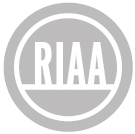 The RIAA has filed a motion to dismiss what may be the most contentious file sharing case to date. In a letter to the judge the RIAA's lawyers admitted they don't believe there is any chance they will be able to positively identify the computer used to share the files in question. They're now confident it was the same PC owned by the plaintiff's daughter, which she has since gotten rid of. The letter also mentioned that they'll be filing for court sanctions against the defense for impeding discovery of this evidence earlier.
The RIAA has filed a motion to dismiss what may be the most contentious file sharing case to date. In a letter to the judge the RIAA's lawyers admitted they don't believe there is any chance they will be able to positively identify the computer used to share the files in question. They're now confident it was the same PC owned by the plaintiff's daughter, which she has since gotten rid of. The letter also mentioned that they'll be filing for court sanctions against the defense for impeding discovery of this evidence earlier.
While RIAA lawyers have focused on who else may have had a computer connected to the internet through Lindor's account her lawyer, Ray Beckerman, has repeatedly attacked both the legality of the damages claimed, the lack of transparency in the investigation, and even the competence of the investigators themselves.
During one exchange, documented in court records Beckerman said "everybody I speak to tells me that MediaSentry doesn't know what they're doing." He also implied that the RIAA's campaign of lawsuits was intended to "target disabled people, home health care aides, people who don't even know how to use a computer"
Throughout the suit, which began more than three years ago, he has consistently taken the RIAA to task for their calculation of damages, which he sees as not just excessive but also beyond the scope of the law. Rather than $750 per song for a total of nearly $7000 he argues that the maximum allowed by law would be the actual cost of the same tracks if purchased ($8.91 for 9 songs) multiplied by a statutory maximum of 9 for a total of $56.70.
Ironically that's the same argument that Universal Music Group, the plaintiffs in this case, used to get damages reduced after losing a copyright infringement case related to sampling where they were the among the defendants.
Regardless of what you may think of Ray Beckerman's tactics, he makes two fundamental points that someone needs to address. First it needs to be established what the approrpriate (and lawful) maximum amount for damages should be. Then we need to make sure that if we're basing court decisions on purported scientific evidence there is actual proof of both the methods and results.
Until such time as both issues are dealt with in a reasonable manner we will continue to see defendants at a disadvantage against massive corporations which operate in secret by their own rules and ultimately answer to no one.












